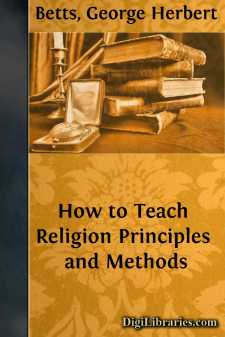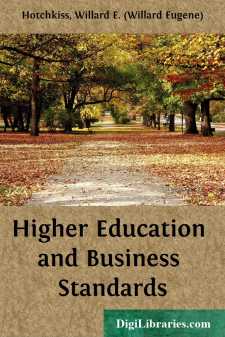Categories
- Antiques & Collectibles 13
- Architecture 36
- Art 48
- Bibles 22
- Biography & Autobiography 813
- Body, Mind & Spirit 142
- Business & Economics 28
- Children's Books 17
- Children's Fiction 14
- Computers 4
- Cooking 94
- Crafts & Hobbies 4
- Drama 346
- Education 46
- Family & Relationships 57
- Fiction 11829
- Games 19
- Gardening 17
- Health & Fitness 34
- History 1377
- House & Home 1
- Humor 147
- Juvenile Fiction 1873
- Juvenile Nonfiction 202
- Language Arts & Disciplines 88
- Law 16
- Literary Collections 686
- Literary Criticism 179
- Mathematics 13
- Medical 41
- Music 40
- Nature 179
- Non-Classifiable 1768
- Performing Arts 7
- Periodicals 1453
- Philosophy 64
- Photography 2
- Poetry 896
- Political Science 203
- Psychology 42
- Reference 154
- Religion 513
- Science 126
- Self-Help 84
- Social Science 81
- Sports & Recreation 34
- Study Aids 3
- Technology & Engineering 59
- Transportation 23
- Travel 463
- True Crime 29
New Ideals in Rural Schools
Categories:
Description:
Excerpt
EDITOR'S INTRODUCTION
In presenting a second monograph on the rural school problem in this series we register our sense of the importance of rural education. Too long have the rural schools suffered from neglect. Both the local communities and the State have overlooked the needs of the rural school system. At the present hour there is an earnest awakening of interest in rural life and its institutions. Already there is a small but certain movement of people toward the country and the vocation of agriculture. A period of agricultural prosperity, the reaction of men and women against the artificialities of city life, the development of farming through the application of science, and numerous other factors have made country life more congenial and have focused attention upon its further needs. It is natural, therefore, that the rural school should receive an increased share of attention.
Educational administrators, legislators, and publicists have become aware of their responsibility to provide the financial support and the efficient organization that is needed to develop country schools. The more progressive of them are striving earnestly to provide laws that will aid rather than hamper the rural school system. In his monograph on The Improvement of the Rural School, Professor Cubberley has done much to interpret current efforts of this type. From the standpoint of state administration he has contributed much definite information and constructive suggestion as to how the State shall respond to the fundamental need for (1) more money, (2) better organization, and (3) real supervision for rural schools.
It is not so clear, however, that rural patrons, school directors, and teachers have become fully aware of their duty in the matter of rural school improvement. To be sure much has been done by way of experiment in many rural communities; but it can scarcely be said that rural communities in general are thoroughly awake to the importance of their schools. The evidence to the contrary is cumulative. The first immediate need is to reawaken interest in the school as a center of rural life, and to suggest ways and means of transmuting this communal interest into effective institutional methods. To this end, Professor Betts has been asked to treat the rural school problem from a standpoint somewhat different from that assumed by Professor Cubberley; that is, from the point of view of the local community immediately related to, and concerned with, the rural school. In consequence his presentation emphasizes the things that ought to be done by the local authorities,—parent, trustee, and teacher. Its soundness may well be judged by the pertinent order of his discussion. Having stated his problem, he initiates his discussion by suggesting how the social relations of the school are to be reorganized; only later does he pass to the detail of curricula and teaching methods. It is a clear recognition of the fact that the community is the crucial factor in the making of a school. The State by sound fiscal and legislative policies may do much to make possible a better country school; but only the local authorities can realize it....














